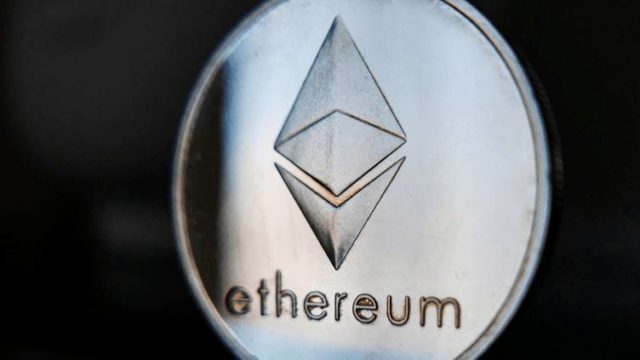By Zev Chafets
Six months ago, at the Glasgow Climate Summit, then-newly elected Israeli Prime Minister Naftali Bennett pledged to reduce carbon emissions to zero by 2050.
The small but noisy community of Israeli environmental activists was happy to overturn the aggressive gas drilling policy of Benjamin Netanyahu’s government.
As a sign that he was serious about what he was saying, the Israeli Ministry of Energy announced the freezing of gas exploration and further export licenses for one year. From now on, according to the green lobby, renewable energy would be the future of Israeli energy. It was an exciting time to be on the right side of the international environmental consensus.
180 degree turn
That excitement came to a halt last week when the Bennett administration announced a 180-degree shift in its gas policy. The reason was obvious. “The energy crisis in Europe has upset the deck. We do not stick to dogmas,” said Lior Schillat, the ministry’s director general, without apology.
The climate activist community was outraged. Israel’s Greenpeace called the decision “scandalous” and attacked the government. He demanded a return to the Glasgow commitment. But even many activists understand the irresistible logic of the government’s decision. Israel has spent two decades creating an offshore gas industry. Europe has now realized that it can not rely on imported Russian gas. Offer, here is your request.
The war in Ukraine has made it clear that it is dangerous for a country to rely on the goodwill of foreign suppliers to meet its energy needs. This is especially true for a country like Israel, a small nation within a wider hostile region.
For the past 20 years, Israel has gone from being a net importer of fossil fuels to self-sufficient, thanks to offshore gas drilling. The government is moving wisely when it aims to maintain this independence and take advantage of the demand of European countries seeking a substitute for Russian imports.
The resumption of gas extraction does not mean that Israel is waiving its climate obligations. The Jewish state is already a world leader in sustainability, especially through technical innovations to address water scarcity, including desalination and sustainable agricultural irrigation. Develops solar energy sources in the Negev desert. In Tel Aviv, Israel’s technology hub, myriads of companies are working on sustainability technologies.
For many Israelis, these efforts have a greater impact and logic than what they see as empty and unrealistic commitments to achieve a zero-carbon footprint.
How will Israeli gas reach Europe?
Israel is not yet a major international exporter of natural gas. Most of the gas it produces is for domestic consumption and its only foreign customers are Jordan and Egypt. However, talks are under way with European Union officials to begin transporting Israeli gas to Europe by the end of the summer.
The initial quantities will be small, but there are already plans for more. The increased supply will require extensive new infrastructure, including possibly a new submarine pipeline that will run across the Mediterranean. This proposal, known as EastMed, had won the support of the US Trump administration. The feasibility study is nearing completion. According to Gina Cohen, an independent energy consultant based in Israel, the pipeline could be operational within five or six years.
But it can never be built. In January, the Biden government withdrew support for the EastMed pipeline project for reasons that are not entirely clear. An alternative being considered is a pipeline from Israel to southeastern Europe via Turkey. This route would be shorter than EastMed. The problem is that Israel does not trust Turkish President Recep Tayyip Erdogan, whose attitude towards the Jewish state is sometimes moderately friendly and sometimes openly hostile.
Cohen mentions two other possible solutions. Israel could supply gas to Egypt for liquefaction and then, in a joint venture with it, export it to other countries. The infrastructure exists, although it should be expanded to allow for the reception of stable and larger volumes for export. The good news is that this could happen relatively quickly. However, the agreement would be complicated for legal reasons and there is unknown information about the internal needs of Egypt itself.
Perhaps the best solution would be for Israel to build, operate and defend its own liquefaction platform and export directly. This week, Israel moved a gas rig to Karish, another unexploited offshore field whose ownership is disputed by Lebanon. The Israeli navy is now protecting the area from Hezbollah threats.
State investment fund
One way or another, Israel is going to sell gas to Europe and to other customers. Last week, the Israeli Ministry of Finance announced that Israel was launching its first state-owned investment fund.
By next June, the fund will begin distributing up to 3.5% of its annual revenue from natural resources, estimated at 1.9 billion shekels, about $ 585 million. This money will be used for social, educational and economic projects.
The fund is not on par with the trillion-dollar investment vehicles run by some other energy powers, but it is large enough to make a difference in a country of 10 million.
As soon as the gas and its profits start to flow, even the most ardent enemies of offshore drilling will have to put a lot of pressure to actually ask for the cannula to close.
Source: Bloomberg
I’m Ava Paul, an experienced news website author with a special focus on the entertainment section. Over the past five years, I have worked in various positions of media and communication at World Stock Market. My experience has given me extensive knowledge in writing, editing, researching and reporting on stories related to the entertainment industry.







